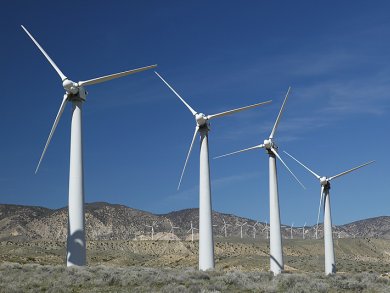A new study by Mark Jacobson, Stanford University, USA, and Mark Delucchi, University of California-Davis, USA, says that it is possible to convert the world’s energy supplies to clean and sustainable sources with today’s technology at costs roughly comparable to conventional energy.
Delucchi and Jacobson assess the costs, technology and material requirements of converting the planet, using a plan which calls for wind and solar power to contribute 90 % of needed energy. Geothermal and hydroelectric sources would each contribute about 4 % in their plan (70 % of the hydroelectric is already in place), with the remaining 2 % from wave and tidal power.
The authors’ plan combines wind and solar energy as one commodity to provide a reliable base load, with hydroelectric energy employed to meet peak demand. They also note the need for better, long-distance transmission to ensure constant supply of electricity from weather-dependent sources. Off-hours excess electricity would be used to produce hydrogen for the industrial and transportation sectors.
They conclude that there are no technological or economic barriers to converting the entire world to clean, renewable energy sources. However, the conversion would be a massive undertaking on the scale of the moon landings. All that is needed most is the societal and political will to make it happen.
- Providing all global energy with wind, water, and solar power, Part II: Reliability, system and transmission costs, and policies
M. A. Delucchi, M. Z. Jacobson,
Energy Policy 2011.
DOI: 10.1016/j.enpol.2010.11.045




